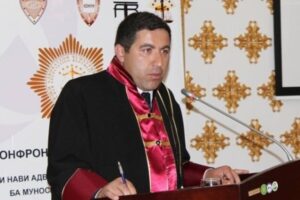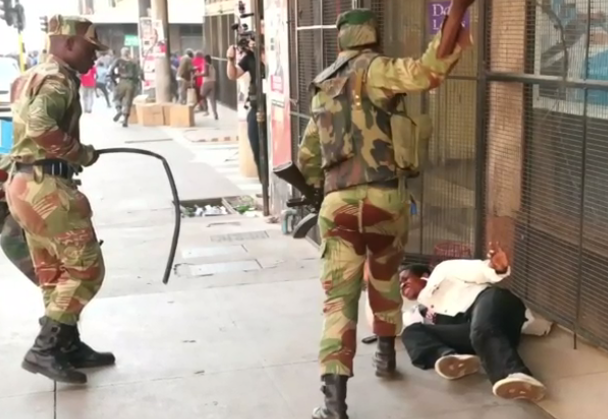
Aug 2, 2018 | Articles, Nouvelles
La CIJ condamne avec la plus grande fermeté les violences qui ont éclaté au Zimbabwe après les élections et appelle au rétablissement de l’état de droit et au respect des droits de l’Homme.
Au moins trois personnes seraient mortes à Harare le 1er août suite à l’utilisation de balles réelles par les Forces de défense du Zimbabwe (ZDF) «pour disperser» des manifestants non armés dans le quartier central des affaires de Harare.
Des membres de la ZDF auraient tiré à balles réelles sur la foule en fuite et auraient agressé des personnes sans distinction, causant des blessures et des pertes en vies humaines.
Bien que la CIJ ne pardonne pas les actes de violence commis par les manifestants et les partisans du parti au pouvoir, elle condamne fermement l’utilisation intentionnelle d’armes mortelles et d’autres actes de la ZDF qui étaient disproportionnés et inutiles dans les circonstances.
Selon la CIJ, les troubles auraient pu être maîtrisés d’une manière compatible avec les obligations internationales du Zimbabwe en matière de droits de l’Homme, ce qui aurait pu éviter des pertes en vies humaines et des blessures aux manifestants et aux passants.
«Le recours à la force létale contre des manifestants non armés ne doit jamais être toléré», a déclaré Sam Zarifi, secrétaire général de la CIJ.
“L’utilisation mortelle et intentionnelle d’armes à feu ne peut être effectuée que lorsqu’elle est absolument inévitable pour protéger la vie”, a-t-il ajouté.
La CIJ rappelle aux autorités zimbabwéennes leur engagement vis-à-vis de l’état de droit, du constitutionnalisme et de la protection des droits de l’Homme prévus par la Constitution et le droit international relatif aux droits de l’Homme.
La CIJ les appelle à respecter l’état de droit et à protéger les droits de l’Homme pendant cette période postélectorale.
La CIJ exhorte les autorités responsables à demander des comptes aux membres de la ZDF responsables des pertes en vies humaines et des mutilations physiques lors des manifestations du 1er août.
Contact:
Arnold Tsunga, Director of the Africa Regional Programme, International Commission of Jurists C: +263 77 728 3248, E: arnold.tsunga(a)icj.org
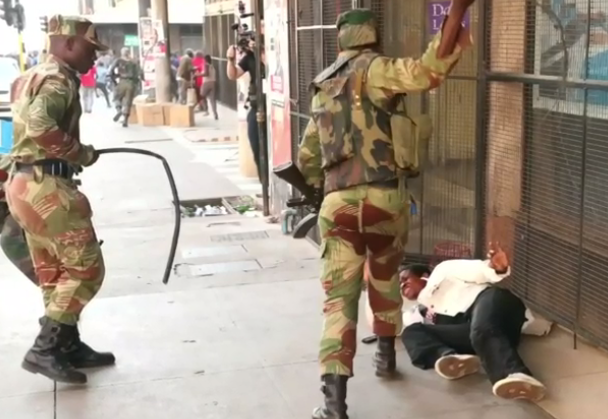
Aug 2, 2018 | News
The ICJ condemns in the strongest terms the violence that erupted in Zimbabwe after the elections, and calls for the restoration of the rule of law and respect for human rights.
At least 3 people are reported to have died in Harare on 1 August as a result of the Zimbabwe Defence Forces’ (ZDF) use of live ammunition “to disperse” unarmed protestors in Harare’s Central Business District.
Members of the ZDF are reported to have fired live bullets against the fleeing crowd, and assaulted people indiscriminately, resulting in injuries and loss of life.
While the ICJ does not condone acts of violence carried out by protesters and party supporters, it strongly condemns the intentional use of lethal force and other actions of the ZDF, which were disproportionate and unnecessary in the circumstances.
According to the ICJ, the unrest could have been contained in a manner consistent with Zimbabwe’s international human rights law obligations, which, in turn, could have avoided loss of lives and injuries to protesters and bystanders.
“The use of lethal force on unarmed protesters must never be condoned,” said Sam Zarifi, the ICJ Secretary General.
“The intentional lethal use of firearms may only be made when strictly unavoidable in order to protect life,” he added.
The ICJ reminds the authorities in Zimbabwe of their commitment to rule of law, constitutionalism and protection of human rights as provided for under the Constitution and relevant international human rights law and standards.
The ICJ calls on them to uphold the rule of law and protect human rights during this post-election period.
The ICJ urges the responsible authorities to hold to account members of the ZDF responsible for the loss of life and limb during the protests on 1 August.
Contact:
Arnold Tsunga, Director of the Africa Regional Programme, International Commission of Jurists C: +263 77 728 3248, E: arnold.tsunga(a)icj.org
Background information
Protests erupted in the morning of 1 August 1 2018 during the announcement of the results for the National Assembly following “the Harmonised Elections” held on 30 of July 2018.
It is alleged by authorities that protesters were damaging property during the protest.
Media reports published later in the day indicate that the Zimbabwe Republic Police (ZRP) invoked section 37(1) of the Public Order and Security Act [Chapter 11 :17], which allows the Minister of Home Affairs upon request by the Commissioner General of Police to seek assistance from the Zimbabwe Defence Forces (ZDF) to quell civil commotion in any district and for the ZDF to assist.
The Zimbabwean Constitution recognizes and protects the rights of citizens to freely and peacefully demonstrate and petition.
It also guarantees the freedom of assembly and association.
Although section 86 of the Constitution makes clear the non-absolute nature of these rights, Zimbabwean authorities must be reminded that any limitations must be in terms of a law of general application and must be fair, reasonable, necessary and justifiable in a democratic society based on openness, justice, human dignity, equality and freedom.
Citizens of Zimbabwe are also reminded of these constitutional provisions and encouraged to exercise their rights within the confines of the law.
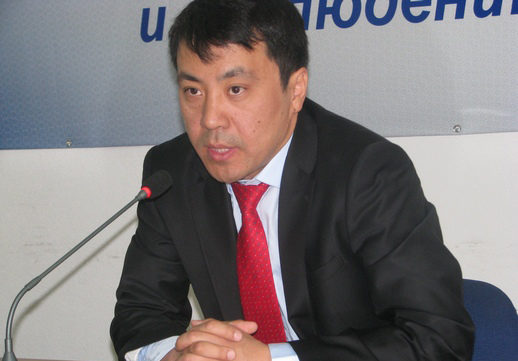
Jul 31, 2018 | News
Today, the ICJ called on the government of Kazakhstan to drop all charges of “knowingly disseminating false information” against lawyer Bauyrzhan Azanov related to his representation of a child who is the alleged victim of sexual abuse by older children.
“The prosecution of Bauyrzhan Azanov in relation to statements he made as part of his representation of a child violates the lawyer’s freedom of expression, and prevent him from effectively representing his client,” said Temur Shakirov, Senior Legal Adviser for the ICJ’s Europe and Central Asia Programme.
“Instead of targeting a lawyer, the investigative authorities should use their resources to investigate the allegations of human rights violations in this case and ensure the protection of the rights of this child in accordance with Kazakhstan’s international obligations,” he added.
Bauyrzhan Azanov, a prominent lawyer in Kazakhstan, took up a high-profile case in which he represented a minor, an alleged victim of sexual and physical abuse over a prolonged period.
The case became public in March 2018 through media reports.
Once the case became public several district police officers were fired, and two heads of schools and some other state agents were suspended from office, reportedly in relation to their failure to report and investigate the case.
In his statements in the social media, Azanov alleged the investigation had been obstructed due to corrupt reasons.
In reaction to this, on 21 May 2018, the mother of the minor submitted a complaint against Azanov where she expressed concerns about “social tension”, “forming a negative image of the investigative body” and herself “as a mother”.
Following the mother’s complaint, on 24 July, the General Prosecutor’s Office initiated a criminal investigation against the lawyer for knowing dissemination of false information, which alleged that:
“The information disseminated by lawyer B. Azanov was deliberately distorted and untrue, which created a false idea among the public about the alleged corruption of justice system, investigative bodies, the mother of the child and other persons. This caused psycho-emotional and social tension among the public and created a threat of destabilization of the internal political situation, thereby creating a threat of violation of public order.”
Through the media, Azanov has denied the allegations against him and has stated that he acted in the best interests of his client and sought to ensure accountability for criminal acts.
On 1 June 2018, Nursultan Nazarbayev, President of the Republic of Kazakhstan commented on the case stating that unreasonable prolongation of the investigation is connected with the nepotism in the police and higher investigative authorities.
The Ombudsperson, members of the Kazakhstan Bar Association and human rights activists have made public statements in support of Bauyrzhan Azanov.
In these circumstances, the ICJ is concerned that criminal charges against lawyer Bauyrzhan Azanov for public comments in which he raised concerns about possible violations of human rights of his minor client, may violate the lawyer’s right to freedom of expression.
The right to freedom of expression is protected under international treaties to which Kazakhstan is a party, including by Article 19 of the International Covenant on Civil and Political Rights (ICCPR). As the UN Human Rights Committee stated in its General Comment 34 on the freedom of expression:
“When a State party invokes a legitimate ground for restriction of freedom of expression, it must demonstrate in specific and individualized fashion the precise nature of the threat, and the necessity and proportionality of the specific action taken, in particular by establishing a direct and immediate connection between the expression and the threat.”
According to the UN Basic Principles on the role of lawyers, lawyers have the right to take part in public discussion of matters concerning the law, the administration of justice and the promotion and protection of human rights without suffering professional restrictions by reason of their lawful action or their membership in a lawful organization (Principle 23).
It is of particular concern that the Prosecutor’s Office document uses vague concepts that may amount to arbitrary use of grounds for restriction of freedom of expression of the lawyer.
In particular, it is unclear how prosecutorial authorities measured “psycho-emotional and social tension of the public” or that on what basis the lawyer’s comments may have “created a threat of destabilization of the internal political situation” creating a threat to the public order.
These broadly and atypically worded justifications for prosecution are likely to lead to arbitrary interference with freedom of expression.
Prosecution of the lawyer for his attempts to raise human rights-related issues of his minor client, unsupported by any evidence or explanation what they may refer to, is also likely to have a chilling effect on those who defend human rights of victims of abuse.
The ICJ recalls that according to the UN Basic Principles on the Role of Lawyers, Governments must ensure that lawyers are able to perform all of their professional functions without intimidation, hindrance, harassment or improper interference (Principle 16).
Kazakhstan-Lawyer Azanov-News-web story-2018-ENG (full story, in PDF)
Kazakhstan-Lawyer-Azanov-News-Web-story-2018-RUS (full story in Russian, PDF)
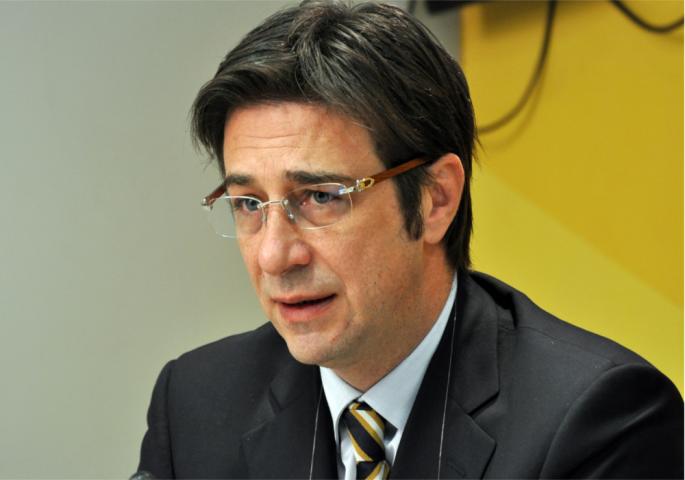
Jul 31, 2018 | Articles, Nouvelles
Le meurtre de l’avocat serbe Dragoslav Ognjanović doit faire l’objet d’une enquête indépendante, rapide et approfondie et les auteurs doivent être traduits en justice, a déclaré aujourd’hui la CIJ.
Dragoslav Ognjanović (photo), éminent avocat qui avait défendu Slobodan Milosovic et représenté des accusés dans des affaires de criminalité organisée, a été abattu devant son domicile à Belgrade, samedi 28 juillet.
«La sécurité des avocats est essentielle au bon fonctionnement du système judiciaire et à la protection de la primauté du droit. Les autorités serbes doivent maintenant prendre des mesures urgentes pour rétablir un climat de confiance dans lequel elles montrent qu’elles sont capables d’assurer la sécurité des avocats potentiellement menacés, et pour enquêter et traduire en justice les auteurs de ce crime,” a déclaré Radmila Dragicevic-Dicic, juge à la Cour suprême de Serbie et vice-présidente de la CIJ.
“L’enquête et les suites pénales liées à cette affaire constitueront un test important pour les autorités et le système judiciaire serbes,” a-t-elle ajouté.
Les barreaux de Serbie et de Belgrade ont appelé les avocats à suspendre leur travail durant une semaine pour exprimer leur préoccupation face au risque de violence qui les menace.
Les autorités serbes mettent cette situation sur le compte de la guerre de clans que se livrent les groupes du crime organisé pour le contrôle du marché de la drogue.
“Les préoccupations des avocats serbes doivent être prises au sérieux par le gouvernement et le parquet, et les barreaux devraient être consultés sur les moyens d’assurer la sécurité des avocats,” a dit Róisín Pillay, directrice du programme Europe de la CIJ.
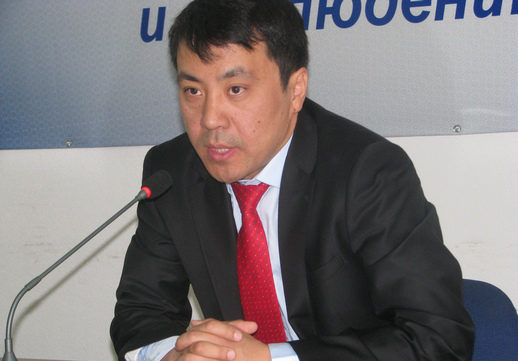
Jul 31, 2018 | Новости, Статьи
МКЮ призывает власти Казахстана снять все обвинения о «распространении заведомо ложной информации», выдвинутые против адвоката Бауыржана Азанова.
Обвинения связаны с защитой адвоката интересов ребенка, который предположительно является жертвой сексуального насилия со стороны подростков.
«Уголовное преследование Бауыржана Азанова на основании его заявлений в связи с защитой интересов ребенка нарушает свободу выражения мнения адвоката и препятствует эффективной защите прав клиента», – отметил Тимур Шакиров, Старший правовой советник Европейской программы МКЮ.
«Ресурсы следственных органов следует направлять не на преследование адвоката, а на расследование подозрений в нарушении прав человека по этому делу и обеспечение защиты прав ребенка в соответствии с международно-правовыми обязательствами Казахстана», – добавил он.
Бауыржан Азанов, известный казахстанский адвокат, вступил в громкое дело о систематическом сексуальном насилии и избиениях в отношении ребенка в качестве представителя потерпевшего. В марте 2018 года дело получило огласку в средствах массовой информации.
После того, как дело стало освещаться в СМИ, были уволены несколько сотрудников полиции, а два школьных директора и несколько должностных лиц были временно отстранены от должности, предположительно в связи с тем, что не сообщили о преступлении и не провели расследования по делу.
В сотсетях Азанов сделал ряд заявлений о том, что надлежащее расследование не проводится в связи с коррумпированностью должностных лиц.
В ответ на данные заявления 21 мая 2018 года мать ребенка обратилась с жалобой на Азанова, в которой обращает внимание на «социальную напряженность» и «формирование негативного образа органа следствия» и себя «как матери».
24 июля Генеральная прокуратура возбудила уголовное расследование в отношении адвоката по обвинению в распространении заведомо ложной информации. По мнению прокуратуры,
«информация, распространенные адвокатом Азановым, являлась преднамеренно искаженной и не соответствующей действительности, что создало у общественности ложное представление о якобы коррумпированности правосудия, органа, ведущего уголовный процесс, матери потерпевшего ребенка и других лиц, вызвала среди общественности психоэмоциональную и социальную напряженность и угрозу дестабилизации внутриполитической ситуации, тем самым создала угрозу нарушения общественного порядка».
В ответ адвокат выступил в СМИ с опровержением предъявленного обвинения. Азанов отметил, что действовал в интересах клиента и добивался привлечения виновных к уголовной ответственности.
1 июня 2018 года Нурсултан Назарбаев, Президент Республики Казахстан, прокомментировал данное дело. Он заявил, что затягивание расследования связано с тем, что сотрудники полиции и руководящих органов следствия оказывали покровительство своим родственникам в числе подозреваемых.
Уполномоченный по правам человека, представители Республиканской коллегии адвокатов и ряд правозащитников выступили с публичными заявлениями в поддержку Бауыржана Азанова.
Принимая во внимание обстоятельства данного дела, МКЮ выражает обеспокоенность в связи с тем, что уголовное преследование адвоката Азанова на основании публичных заявлений, сделанных с целью привлечь внимание к возможным нарушениям прав человека в отношении несовершеннолетнего клиента, может составлять нарушение права адвоката на свободу выражения мнения.
Право на свободу выражения мнения гарантируется международными договорами, участником которых является Казахстан, в том числе статьей 19 Международного пакта о гражданских и политических правах (МПГПП). Как указал Комитет по правам человека ООН в Замечании общего порядка 34 «Свобода мнений и их выражения»,
«Когда государство-участник ссылается на законные основания при установлении ограничения на свободу выражения мнений, оно должно четко и подробно продемонстрировать конкретный характер угрозы, а также то, что принятие конкретных мер отвечает критериям необходимости и соразмерности, в частности, путем установления прямой и непосредственной связи между формой выражения и угрозой».
В соответствии с Основными принципами ООН, касающимися роли юристов, юристы имеют право принимать участие в общественных дискуссиях по вопросам, касающимся права, отправления правосудия и поощрения и защиты прав человека, не подвергаясь ограничению своей профессиональной деятельности вследствие своих законных действий или членства в законной организации (принцип 23).
Особую обеспокоенность вызывают расплывчатые формулировки, которые используются в постановлении Генеральной прокуратуры, что может квалифицироваться как произвольное использование оснований для ограничения свободы выражения мнения адвоката.
В частности, неясно, каким образом органы прокуратуры измеряют степень «психоэмоциональной и социальной напряженности среди общественности», или же на каком основании они пришли к выводу о том, что высказывания адвоката «вызвали угрозу дестабилизации внутриполитической ситуации», что создает угрозу нарушения общественного порядка.
Данные расширительные основания для уголовного преследования, сформулированные весьма нестандартным образом, могут привести к произвольному вмешательству в свободу выражения мнения адвоката.
Уголовное преследование адвоката за попытки привлечь внимание общественности к проблеме нарушения прав человека в отношении несовершеннолетнего клиента, в отсутствие каких-либо доказательств или разъяснений, о каких именно действиях говорится в постановлении прокуратуры, также могут оказать запугивающее воздействие на тех, кто защищает права человека в отношении жертв насилия.
МКЮ напоминает, что, в соответствии с Основными принципами ООН, касающимися роли юристов, государства должны обеспечить, чтобы юристы могли выполнять все свои профессиональные обязанности в обстановке, свободной от угроз, препятствий, запугивания или неоправданного вмешательства (принцип 16).
Kazakhstan-Lawyer-Azanov-News-Web-story-2018-RUS (полная история на русском, в формате PDF)







